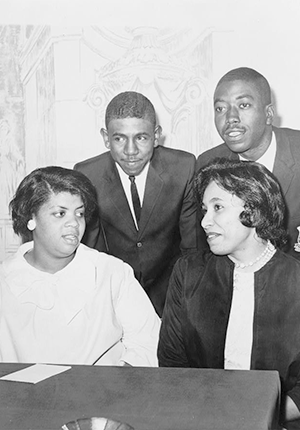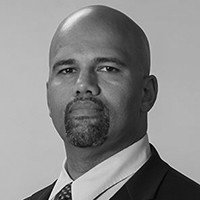Historic Document
Dissenting Opinion in Briggs v. Elliott (1951)
Judge J. Waties Waring | 1951

Summary
In Briggs v. Elliott, Black parents in Clarendon County, South Carolina, brought suit challenging a state law that required their children to attend segregated schools. Lawyers from the NAACP, led by Thurgood Marshall, represented them. At trial, a panel of federal judges rejected the challenge, but J. Waties Waring (1880-1968), a South Carolina judge who had ruled in favor of African American challenges to racial subordination in previous cases, dissented. Waring’s dissent proved to be a more forthright statement of why school segregation was unconstitutional than the famous Supreme Court opinion when the case reached the Supreme Court as part of Brown v. Board of Education.
Selected by

Christopher Brooks
Professor of History, East Stroudsburg University

Kenneth Mack
Lawrence D. Biele Professor of Law, Harvard Law School
Document Excerpt
. . . . The whole discussion of race and ancestry has been intermingled with sophistry and prejudice. What possible definition can be found for the so-called white race, Negro race or other races? Who is to decide and what is the test? . . . So then, what test are we going to use in opening our school doors and labeling them ‘white’ and ‘Negro’? . . . [W]e have had repeated declarations from leading politicians and governors of this state and other states declaring that ‘white supremacy’ will be endangered by the abolition of segregation. . . .
Although some 73 years have passed since the adoption of the Fourteenth Amendment and although it is clearly apparent that its chief purpose, (perhaps we may say its only real purpose) was to remove from Negroes the stigma and status of slavery and to confer upon them full rights as citizens, nevertheless, there has been a long and arduous course of litigation through the years. . . .
The instant case which relates to lower school education is based upon exactly the same reasoning followed in the Sweatt and McLaurin decisions. In the Sweatt case, it was clearly recognized that a law school for Negro students had been established and that the Texas courts had found that the privileges, advantages and opportunities offered were substantially equivalent to those offered to white students at the University of Texas. Apparently, the Negro school was adequately housed, staffed and offered full and complete legal education, but the Supreme Court clearly recognized that education does not alone consist of fine buildings, class room furniture and appliances but that included in education must be all the intangibles that come into play in preparing one for meeting life. . . .
. . . [I]t was clearly apparent, as it should be to any thoughtful person, irrespective of having such expert testimony, that segregation in education can never produce equality and that it is an evil that must be eradicated. This case presents the matter clearly for adjudication and I am of the opinion that all of the legal guideposts, expert testimony, common sense and reason point unerringly to the conclusion that the system of segregation in education adopted and practiced in the State of South Carolina must go and must go now. . . .
As heretofore shown, the courts of this land have stricken down discrimination in higher education and have declared unequivocally that segregation is not equality. But these decisions have pruned away only the noxious fruits. Here in this case, we are asked to strike its very root. Or rather, to change the metaphor, we are asked to strike at the cause of infection and not merely at the symptoms of disease. And if the courts of this land are to render justice under the laws without fear or favor, justice for all men and all kinds of men, the time to do it is now and the place is in the elementary schools where our future citizens learn their first lesson to respect the dignity of the individual in a democracy.
To me the situation is clear and important, particularly at this time when our national leaders are called upon to show to the world that our democracy means what it says and that it is a true democracy and there is no under-cover suppression of the rights of any of our citizens because of the pigmentation of their skins. . . .




